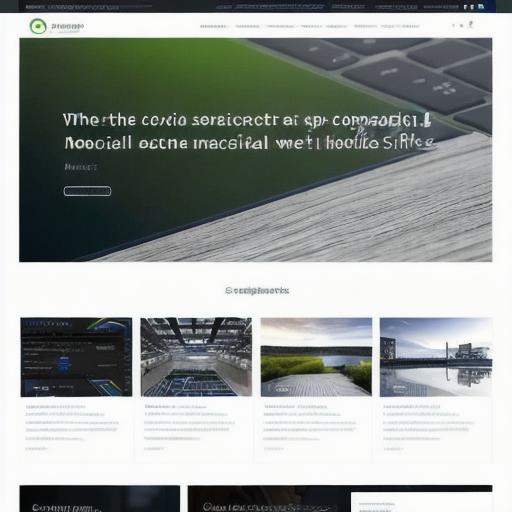Introduction
Marketing is a crucial aspect of any business, regardless of its size or industry. It involves promoting a product or service to potential customers, with the goal of driving sales and increasing brand awareness. In today’s digital age, there are countless marketing tools available to help businesses achieve their goals. In this article, we will explore the different types of marketing tools and how they can benefit your business. We will also provide tips on how to effectively use these tools and optimize your marketing strategy for success.
Understanding Marketing Tools

Marketing tools are software or services that are designed to help businesses promote their products or services more effectively. These tools come in many different forms, including website builders, social media management platforms, email marketing software, and analytics tools. The purpose of these tools is to make it easier for businesses to reach and engage with their target audience, track their performance, and measure the effectiveness of their marketing campaigns.
Types of Marketing Tools
1. Website Builders
Website builders are tools that allow businesses to create and manage their own websites. They typically offer pre-designed templates, drag-and-drop editing tools, and hosting services. Website builders can be an effective way for small businesses with limited technical expertise to establish an online presence.
2. Social Media Management Platforms
Social media management platforms are tools that allow businesses to manage their social media accounts from a single dashboard. These platforms typically offer features such as post scheduling, content curation, and analytics. Social media management platforms can be an effective way for businesses to engage with their audience on multiple platforms, save time, and measure the effectiveness of their social media campaigns.
3. Email Marketing Software
Email marketing software is a tool that allows businesses to send targeted emails to their customers. These tools typically offer features such as email list segmentation, autoresponders, and analytics. Email marketing software can be an effective way for businesses to nurture leads, build relationships with customers, and drive sales.
4. Analytics Tools
Analytics tools are software or services that allow businesses to track and analyze their website traffic, social media performance, and other marketing metrics. These tools typically offer features such as goal tracking, conversion rate analysis, and A/B testing. Analytics tools can be an effective way for businesses to optimize their marketing campaigns and make data-driven decisions.
5. Content Marketing Tools
Content marketing tools are software or services that help businesses create and distribute content in order to engage with their target audience and drive traffic to their website. These tools typically offer features such as content creation templates, SEO optimization tools, and analytics. Content marketing tools can be an effective way for businesses to establish themselves as thought leaders in their industry and build brand awareness.

6. Video Marketing Tools
Video marketing tools are software or services that help businesses create and distribute videos in order to engage with their target audience and drive traffic to their website. These tools typically offer features such as video editing tools, hosting services, and analytics. Video marketing tools can be an effective way for businesses to showcase their products or services and build brand awareness.
7. Influencer Marketing Platforms
Influencer marketing platforms are software or services that connect businesses with social media influencers who can help promote their products or services to their followers. These platforms typically offer features such as influencer discovery tools, campaign management tools, and analytics. Influencer marketing platforms can be an effective way for businesses to reach a wider audience and build brand awareness.
8. Search Engine Optimization (SEO) Tools
SEO tools are software or services that help businesses improve their search engine rankings and drive more traffic to their website. These tools typically offer features such as keyword research tools, on-page optimization tools, and analytics. SEO tools can be an effective way for businesses to increase their online visibility and drive more sales.
Benefits of Marketing Tools
1. Increased Efficiency
Marketing tools can help businesses save time and increase efficiency by automating routine tasks such as social media management, email marketing, and analytics. This allows businesses to focus on more strategic tasks such as developing new products or services.
2. Improved Engagement
Marketing tools can help businesses engage with their target audience more effectively by providing features such as content curation, social media scheduling, and personalized messaging. This can lead to increased brand loyalty and higher customer retention rates.
3. Enhanced Measurement and Analytics
Marketing tools provide businesses with valuable insights into their marketing performance, including website traffic, social media engagement, and email open rates. This data can be used to optimize marketing campaigns and make data-driven decisions.
4. Cost Effective
Many marketing tools offer affordable pricing options, making them accessible to small businesses with limited budgets. This allows businesses to invest in their marketing efforts without breaking the bank.
5. Increased Scalability
Marketing tools are designed to scale as a business grows, allowing businesses to easily expand their marketing efforts and reach a wider audience.
How to Effectively Use Marketing Tools
1. Define Your Goals
Before using any marketing tool, it’s important to define your goals. This will help you determine which tools are best suited for your business and how you can effectively use them to achieve your objectives.
2. Choose the Right Tool for the Job
Different marketing tools serve different purposes. For example, website builders are best suited for small businesses looking to establish an online presence, while social media management platforms are more effective for businesses looking to engage with their audience on multiple platforms.
3. Develop a Strategy
Once you’ve chosen your marketing tools, it’s important to develop a strategy for using them effectively. This should include a content calendar, social media schedule, and email campaign plan.
4. Monitor Your Performance
Regularly monitoring your performance is crucial for optimizing your marketing campaigns. Use analytics tools to track website traffic, social media engagement, and email open rates, and adjust your strategy as needed.
5. Continuously Improve
Marketing is a constantly evolving field, and it’s important to stay up-to-date with the latest trends and best practices. Regularly review your marketing strategy and make improvements as necessary to ensure that you are getting the most out of your tools.
Case Studies and Personal Experiences
1. Airbnb
Airbnb is a well-known example of a business that has effectively used marketing tools to achieve its goals. The company uses website builders to create unique, personalized experiences for its customers, social media management platforms to engage with its audience on multiple platforms, and analytics tools to measure the effectiveness of its campaigns.
2. HubSpot
HubSpot is a software company that uses a variety of marketing tools, including website builders, content marketing tools, and analytics tools, to promote its products and services. The company has developed a successful inbound marketing strategy, which involves creating valuable content that attracts and engages potential customers.
3. Small Business Owner
As a small business owner, I have used a variety of marketing tools to grow my business. I use website builders to create a professional-looking website, social media management platforms to engage with my audience on multiple platforms, and email marketing software to nurture leads and build relationships with customers. I also regularly monitor my performance using analytics tools and adjust my strategy as needed.
4. Marketing Expert
As a marketing expert, I have seen firsthand the power of marketing tools to help businesses achieve their goals. I believe that it’s important for businesses to choose the right tool for the job, develop a strategy, monitor their performance, and continuously improve in order to effectively use these tools and see results.
Conclusion
Marketing tools can be a powerful asset for businesses looking to increase efficiency, engagement, measurement and analytics, cost-effectiveness, scalability, and achieve their goals. By defining your goals, choosing the right tool for the job, developing a strategy, monitoring your performance, and continuously improving, businesses can effectively use marketing tools to drive more sales and grow their business.




